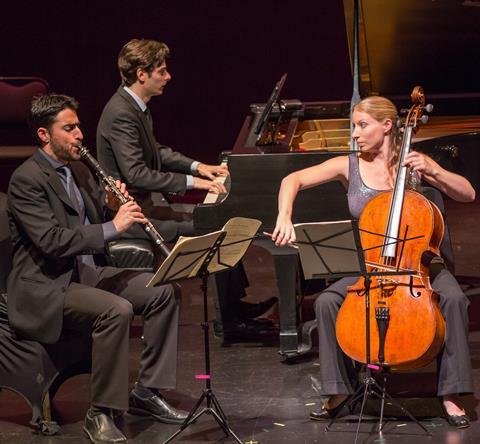Leah Hollingsworth hears the performance at Merkin Concert Hall on 26 September 2019

The Israeli Chamber Project presented a vibrant programme organised around the idea of how folk music influences concert music. It highlighted the music of Bruch and Bartók especially, and quite cleverly presented selections from both Bruch’s Eight Pieces for clarinet, viola and piano and Bartók’s 44 Duos for two violins – breaking them up into groups of three and interspersing them among the other works on the programme. The Bruch was played with tremendous phrasing and gorgeous sound from the trio, with great direction and long lines. The Bartók duo movements were a delight, each one played with vivacity, great energy and fantastic passion and character. The pizzicato movement was stunning in its clarity and control. György Kurtág’s miniature pieces Hommage à R. Schumann were played with a true sense of respect for the style, and the piano dynamics were impressively delicate. Martinů’s Three Madrigals for violin and viola were delightful: the accompaniment was always a bit inflected, influenced by the melody and chord progressions, and the violin lines soared beautifully in the first movement. The range and variety of colours achieved in the opening muted section of the Poco andante was truly astounding, and the final movement concluded with evident love for the music. Dvořák’s op.74 Terzetto closed the programme – and it seemed that they had saved the best till last. The opening was gorgeously played, with elegant timing and phrasing. The transition into the Larghetto was artful, and the trio boasted flawless ensemble in the Scherzo, which had a proper Hungarian feel.
Photo: Bill Blackstone











































No comments yet